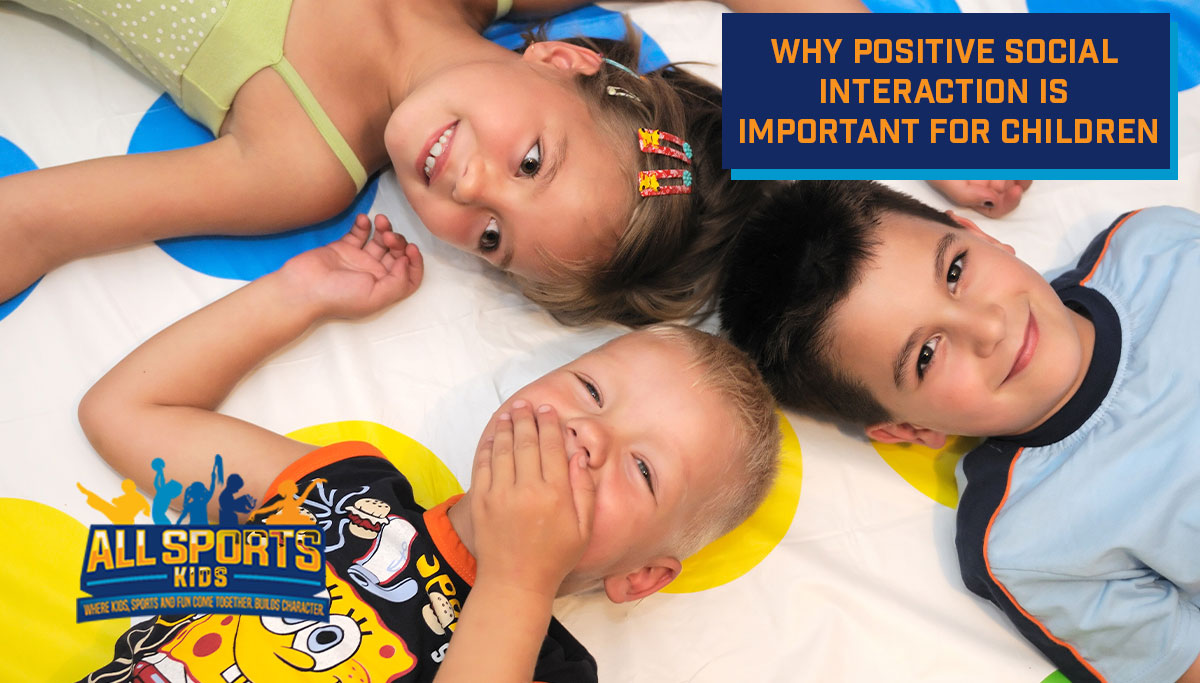Why Positive Social Interaction Is Important For Children

Every day, children have countless opportunities to watch, imitate, talk to, and play with their peers. It’s important for children to learn social skills to interact appropriately and successfully with other children. These skills will set them up for healthy friendships and connections throughout their lives.
Here are 5 reasons why it’s important for your child to experience and practice positive social interaction:
1. It Teaches Healthy Conflict Resolution
Little kids have big feelings, and they often don’t know what to do with them. Modeling healthy conflict resolution gives children the tools they need to navigate feelings of frustration, disappointment, or anger towards another person.
Positive social interactions encourage children to communicate effectively with their peers, even if they’re upset. Learning to say, “I feel [blank] because [blank], and I would like [solution] to happen” teaches preschoolers to compromise and care for each other. One aspect of effective parenting is modeling healthy communication during conflict.
At preschool age, sharing is an important part of being a good friend. The primary form of interaction at this age is playing in a shared space. That means shared resources, shared spaces, and shared attention from the authority figure.
When sharing is modeled to children in a positive way, and they are taught how to navigate sharing, they learn to be better friends to their peers.
3. It Decreases Their Stress Levels
A 2019 child development study found that when a child learns a new social skill, their cortisol levels decrease. Cortisol is a hormone the body produces in a stressful situation.
For many preschoolers, anywhere other than home is at least a little stressful. Teaching them positive social interaction with other children gives them the confidence to make friends and explore socially.
4. Children Practice Cooperating With Each Other
To cooperate with someone is to work with them towards a common goal. A child who cooperates is respectful, curious, and eager to participate and help where they can.
Having good cooperation skills is essential for peacefully and successfully living within a community, whether it’s at home with siblings, in school with classmates, and eventually in a job setting with co-workers.
5. It Teaches Children To Actively Listen
Listening isn’t about waiting for your turn to speak but absorbing what the other person is saying. Active listening is an essential component of healthy communication. To hold a successful conversation, your child needs to learn how to actively listen.
Listening is an important skill to build and maintain healthy relationships. These skills will stay with them for the rest of their lives, and one day help them to navigate friendships, romantic relationships, and professional relationships.
Listening also helps children understand schoolwork as they advance academically. When they know to listen and focus on what the teacher is saying, they’ll have an easier time absorbing school material, taking notes, and thinking about the subject at hand.
The skills and interactions that children use every day allow them to form important friendships that help to shape their social and emotional development. That’s what makes positive social interactions so important. All Sports Kids, we encourage this in a safe, controlled, and fun environment. With 25 years of experience working with children, we know how to model positive social interactions and facilitate social learning.
Ready for your child to have the time of their lives? Register now for our aftercare program, sports camps, and more.
